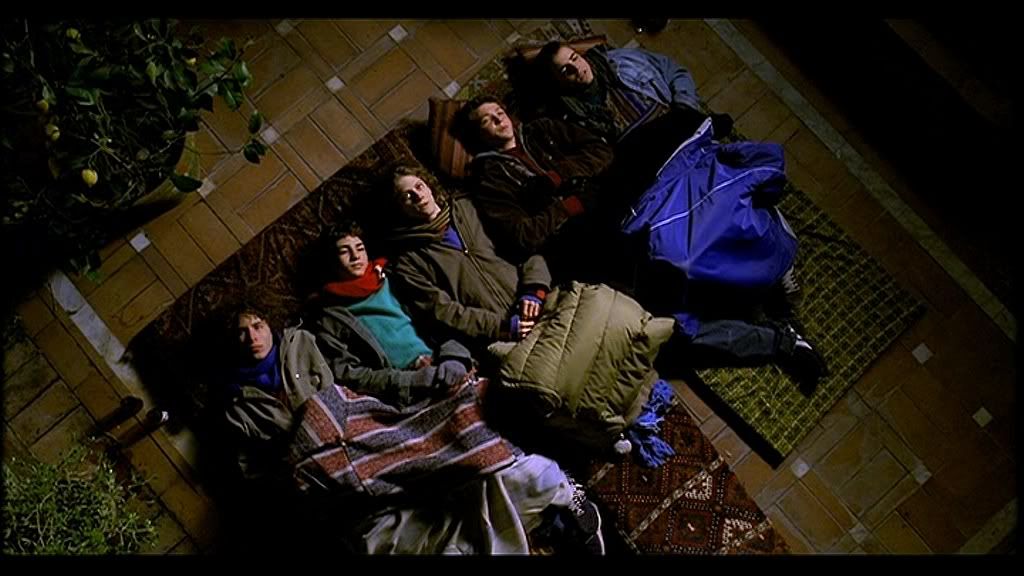
Boys gossip too!
The teenagers in Come Te Nessuno Mai (But Forever in My Mind, but the literal translation is more along the lines of "Like you, nobody, never") are as concerned with saving humanity and plumbing the depths of reality as they are with getting laid. This sometimes-sweet, sometimes-sarcastic film shows the highs and lows of being an idealistic teen, desperate to mean something and finding meaning in everything. For 16-year-old Silvio (Silvio Muccino), sleeping over at his occupied high school is a matter of "life and death". He is as desperate for the advice of others as he is quick to discard it as "bullshit". Everything in this film is fast, emotional, a little sardonic but very compelling.
For those unfamiliar with Italian youth, the cliques and fads may be particular (remnants of communism/partigiani, remnants of fascism, influences from American hip-hop) but the themes are universally applicable. The story follows Silvio and his best friend, Ponzi (Giuseppe Sanfelice, the son from The Son's Room). The annual student occupation is being planned in their school and, amidst references to Gramsci, Che, and Bob Marley, the students gossip and calculate endlessly on how best to get laid. Not that this is a vulgar film; quite the opposite, its sweetness is revealed in how similar the boys and girls are in their desires. "I want a girl to fall in love with me," Ponzi admits one evening. Indeed, love triangles and quadrangles abound as Silvio falls for Valentina (Giulia Carmignani), who is dating Martino (Simone Pagani), a friend of Silvio and Ponzi. Meanwhile, Claudia (Giulia Steigerwalt) has been burning the candle for Silvio for six months and is building up the courage to tell him.
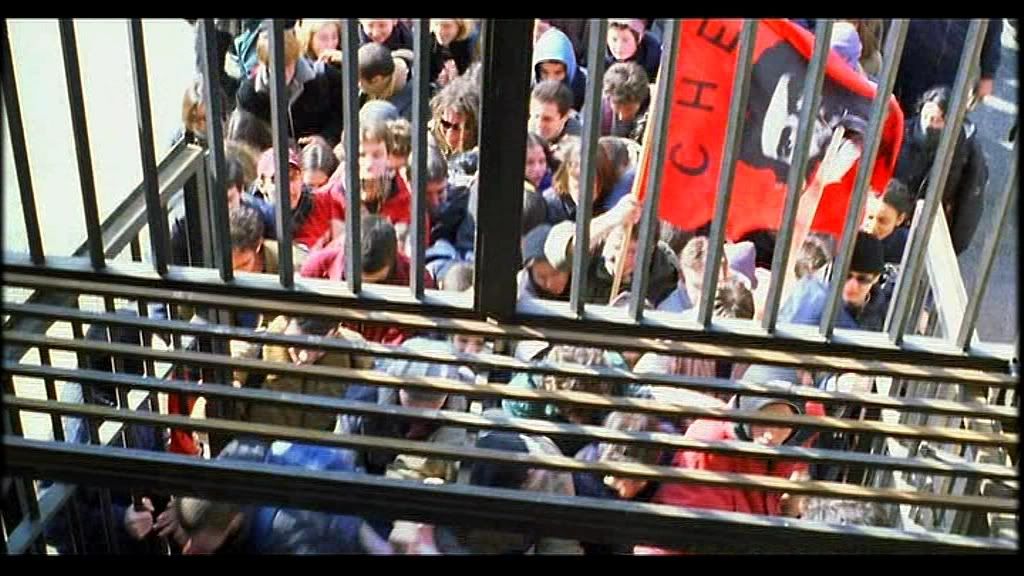
Occupying the school.
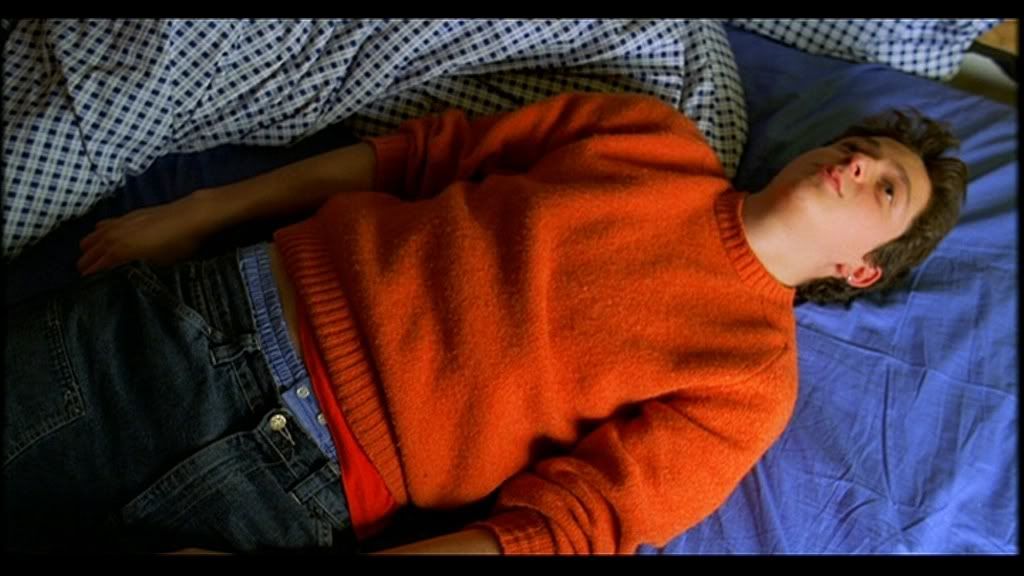
Teen angst!
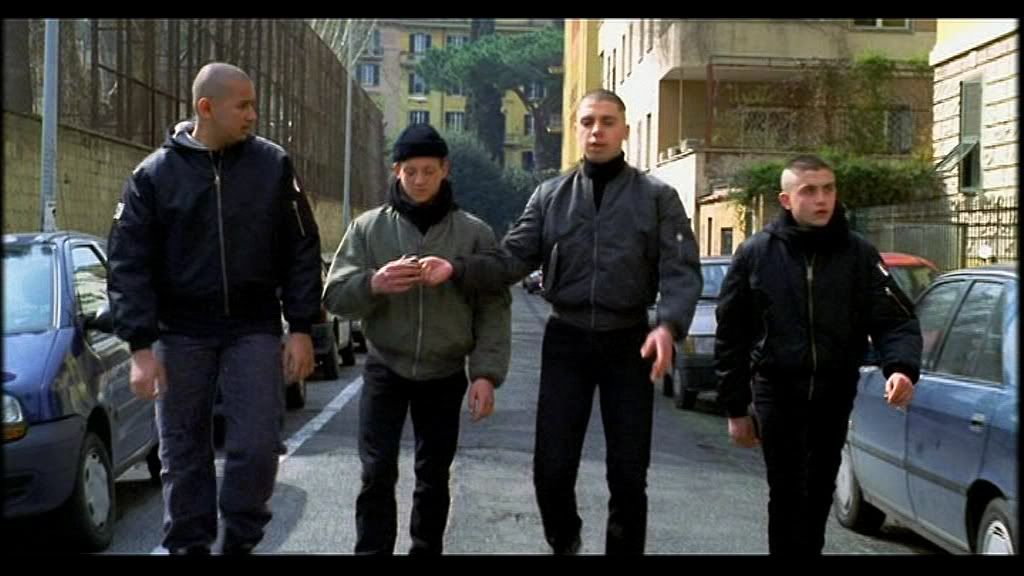
I fasci.
Generational clashes occur between Silvio and his ex-idealist parents, while clique clashes occur when some local fascist youth come pick a fight at the school. Everything is soaked in Romanness, from the dialect spoken by the students to the off-hand shots of Silvio motoring down the Lungotevere ("Along the Tiber") street to the references to i Pariolini (that is, residents of Rome's upper-class Parioli neighborhood). There are, however, the universal themes of immortal youth ("I don't even know what happens after you die," Silvio says at one point, "but right now, I don't feel like I could ever die.") and the fear of not making a mark.
It is a short film - under 90 minutes - though it feels fully-fleshed out and satisfying. We saw it several years ago and could only remember lots of scenes of teenagers running down hallways, but we also remembered enjoying it immensely. The second time around, we noted much more heavily the slightly sardonic wit - the director, Gabriele Muccino (who recently directed The Pursuit of Happyness), clearly has affection for the young pseudo-revolutionaries, but he also takes what they claim to represent with a grain of salt. Effectively, he shows Silvio and his gang as being desperate for a cause, but unable to really scratch out a good, meaty one. (Silvio's parents often provide scathing commentary: "We protested the Vietnam War. We had real things to protest!") There are several smirk-worthy moments. In one scene, the students are running through the school in order to occupy it. A janitor runs into them, begging them to stop, and one of the students yells, "What the hell are you doing? You should be with us, you're a proletarian!" The janitor yells after her, "You're not the proletariat!" The girl responds, "The proletariat's not a nation, it's you!"
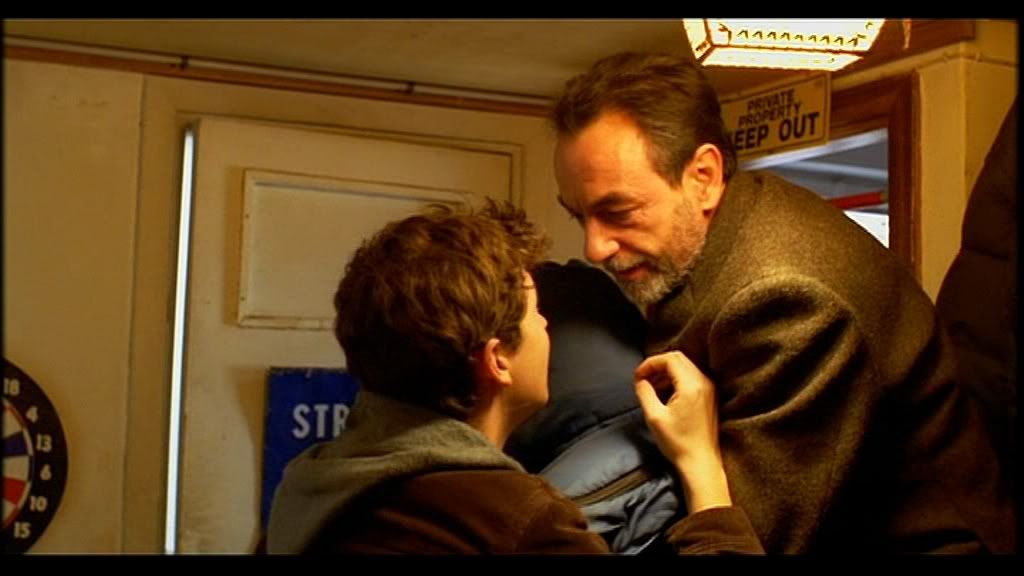
OMG my parents are bourgeoise.
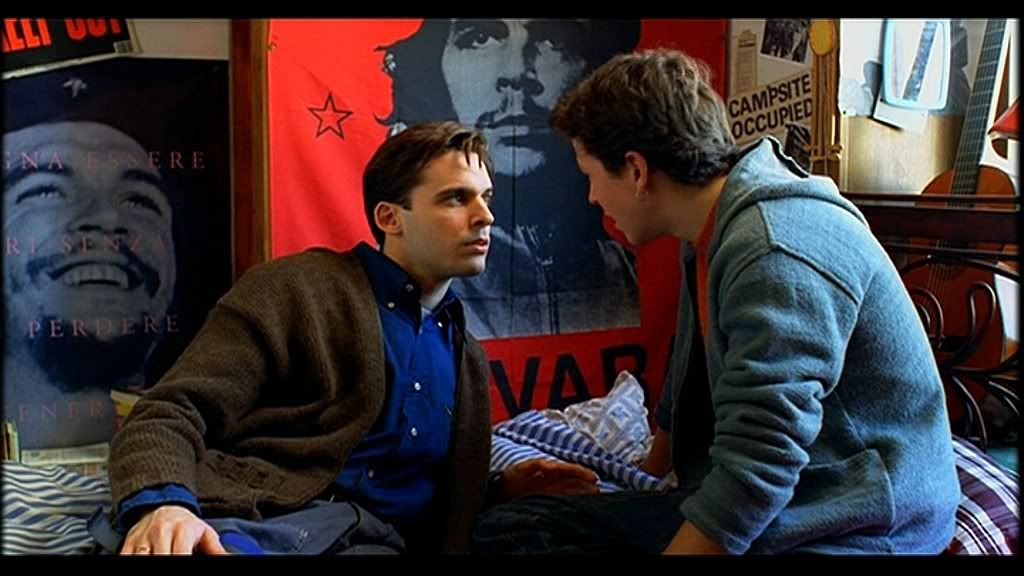
Silvio getting advice from his older brother.
We saw one Italian review describing this film as about the "emotional education of Silvio", and this pretty much hits in the mark. By the film's end, Silvio has matured greatly (thanks mainly to getting a girlfriend), and, while the film touches on larger themes of class wars and Italian politics, it really is mostly about the beauty and turbulence of adolescence.


No comments:
Post a Comment